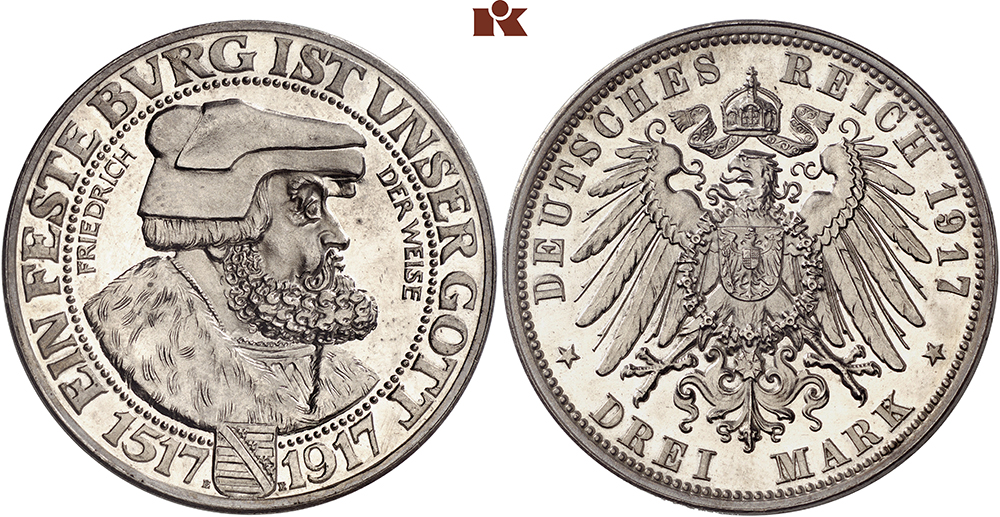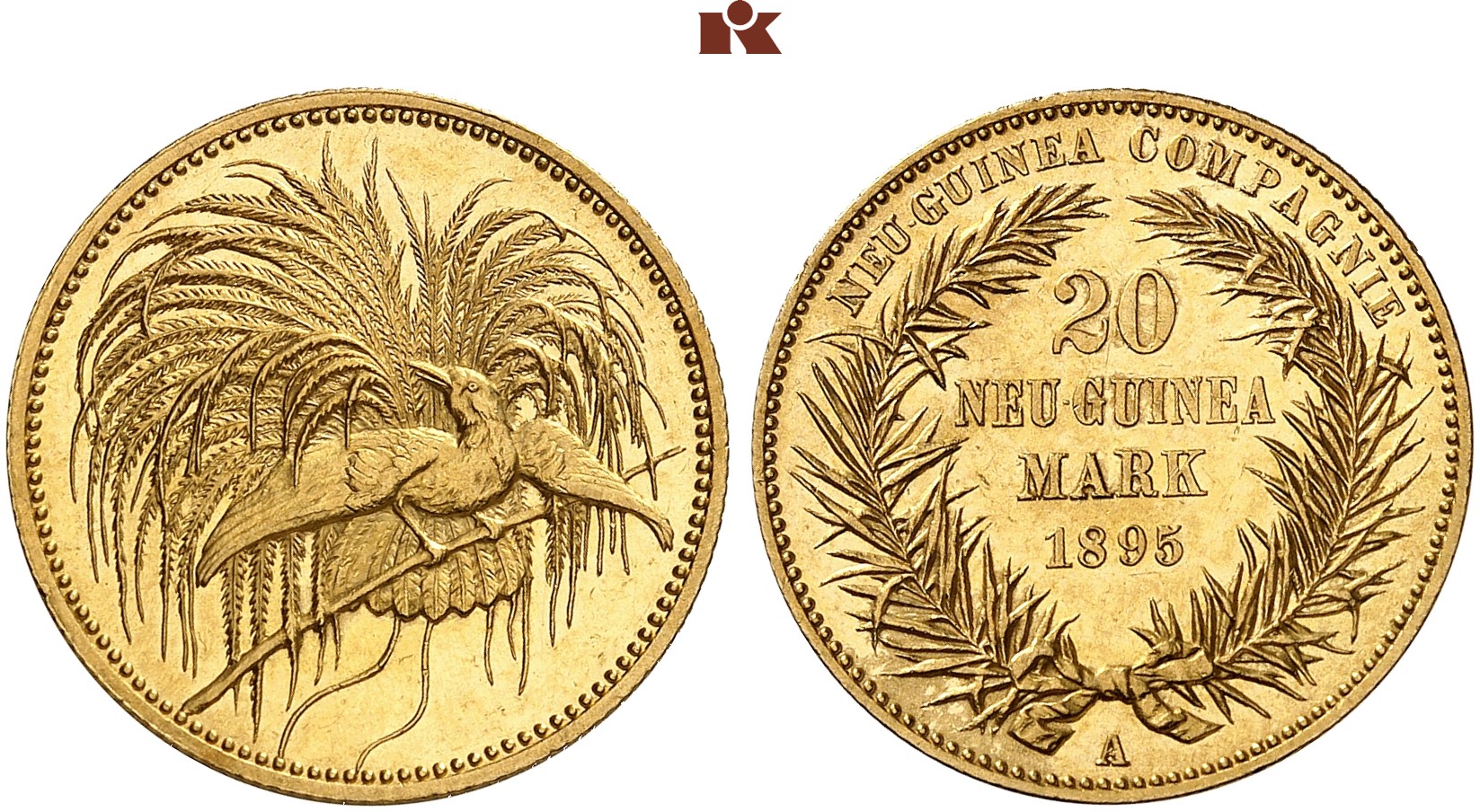The Fascination of Minted Gold (and Silver)
16. August 2021
There is something special about the relationship between a collector and a coin dealer. This is demonstrated by the fate of the Hermann Schwarz Collection, which will be auctioned off by Künker at the beginning of their Fall Auction Sales, which take place from 25 September to 1 October 2021. When the heirs of the collector, who had died in 1961, planned to sell the collection, they could only think of one firm to do the job: the dealership that had once helped Hermann Schwarz build his collection. That was the Munich coin shop of Julius Jenke. After the death of its founder, Egon Beckenbauer took over the firm. Beckenbauer sold it to the private bank Aufhäuser or rather Hauck & Aufhäuser, which sold it to Künker in 2010. Thus, the collector’s heirs got in touch with Künker am Dom. Being the successor of the coin dealer Julius Jenke, Künker’s experts did whatever they could to live up to the trust of the heirs. The Hermann Schwarz Collection is presented in a separate catalog entitled “The Fascination of Minted Gold”.
The Schwarz Collection is just one of many private collections offered in Künker’s Fall Auction Sales: the spectrum covers material from Greek and Roman coins of the collection of an engineer and spectacular ancient rarities from the collection of a cosmopolitan, to the second part of the Axel Tesmer Collection with issues of the Prussian kings, to coins and medals from Brunswick-Lüneburg from the collection of an engineer.
Two other collections – Coins and Medals from the Middle Ages and the Modern Period from South German Private Ownership and Nuditas in nummis / Nude and Eros in Numismatics / The W. Risse Collection – will be presented later in a separate auction preview. You should definitely save the auction dates in your agenda. The two eLive Premium Auctions will be held on 12 and 13 October 2021 at www.eLive-Auction.de.
Catalog 351: Coins from the Ancient World
Sat 25 Sept. 2021
The success of any collection depends on the collector. And being loyal to the dealer who helped him build it is a collector’s way of thanking his dealer for his good advice. Künker is proud of the fact that satisfied collectors do not only buy coins at Künker auctions but also sell them – just like the collector does who presents himself as the “engineer”. This collector built an impressive coin collection over the past forty years. Following the tradition of the 19th century, it contains ancient coins as well as issues from the collector’s homeland: Brunswick. However, as Dr Andreas Kaiser points out, there is one thing both parts of his collection have in common: “His talent for attention to detail and accuracy on the one hand as well as foresight on the other hand is also evident in his excellent numismatic collection.” Thus, connoisseurs will find an abundance of coins that combine sought-after qualities in catalog 351: great style, detailed engraving, finest quality and excellently documented provenance – for Greek and Roman issues. Whether it be a Celtic silver coin, Greek tetradrachm, stater or Roman denarius: the coins from the collection of an engineer will please special collectors of the most refined taste. Many of these characteristics also apply to the collection of a cosmopolitan, which unites coins that many collectors can only dream of. For instance, the probably most beautiful specimen of all staters of Abdera, estimated at 50,000 euros, with the exhausted Heracles on the reverse and the probably best-preserved specimen of an aureus of Vespasian that celebrated the victory over the Jews in 72 AD. The coin has an impressive estimate of 250,000 euros. But do not let yourself be fooled by these high estimate! Catalog 351 contains specimens with estimates of less than 25 euros. Thus, everyone can participate in the bidding process in order to get their hands on an interesting piece for their own collection!
Catalog 352: The Hermann Schwarz Collection: The Fascination of Minted Gold
Sat 25 Sept. 2021 – Ancient coins
Mon 27 Sept. / Tue 28 Sept. 2021– Coins and medals from medieval and modern times
The Hermann Schwarz Collection contains more than 1,500 lots with gold coins from ancient to modern times. The many interesting specimens inspired Künker’s experts to title this collection “Fascination of Minted Gold”. However, it was probably not the warm shimmer of gold that convinced the collector to focus on gold coins at the end of the 1920s. Back then, Germany had only just overcome the hyperinflation that prevailed after World War I. Gold was inflation-proof. And, indeed, by selling part of his collection after World War II, the entrepreneur financed reconstructing his family-owned publishing house – the oldest one specialized in forms in Bavarian – which had suffered severe damage in the Bombing of Munich.
Whether buying or selling, the Munich coin dealer Julius Jenke (1882-1957) advised the collector in all numismatic matters. Julius Jenke knew what he was doing: his father had already been a coin dealer too. Julius Jenke had studied history and art history in Munich, Geneva and Berlin before opening his coin shop at Maximiliansstraße 10 in the 1920s. We can learn how he operated as a coin dealer from an obituary published by the Bavarian Numismatic Society: “Always ready to help, he put his rich knowledge and experience at the service of the cause and proved time and again to be a selfless advisor, especially when his clients were beginners or young collectors.”
We have to agree: Julius Jenke perfectly advised Hermann Schwarz, as can be proven by Künker’s catalog 352. Following the style of his time, Hermann Schwarz compiled a general collection of gold coins. It starts with ancient coins and ends with contemporary issues of the 1950s. As was customary at the time, quality was way less important than the historical importance of a piece. However, this does not mean that you cannot find FDC coins in his collection. You certainly can! Some extremely rare issues are completely untouched and might be the most beautiful known specimen of that type. They were just as precious to the collector as all the coins of very fine quality whose estimates are only slightly above their material value. Thus, auction 352 has something on offer for every collector regardless of their budget and field of interest. To illustrate the material, we present two completely different coins that are typical for this collection, as is their diversity:
In 1954, Hermann Schwarz purchased a 5 guinea piece of 1701 from the stock of Julius Jenke’s dealership, which was graded MS-61 by NGC, i.e. extremely fine to FDC. The finely minted coin features a magnificent portrait of William III, the British ruler who was catapulted to the head of the island state by the Glorious Revolution. The estimate is 25,000 euros, a rather conservative figure considering the prizes that are currently being realized by coins of this type.
Less than a hundredth of this estimate, namely 240 euros, is the starting price of a 100 lire piece of the Vatican of which only 4,000 specimens were minted by Pius XII in 1950 on the occasion of the holy year. Hermann Schwarz purchased this modern commemorative coin for his collection probably shortly after it was issued.
Thus, this catalog truly has something for everyone! Even though – as usual – the pictures in this preview rather focus on the spectacular pages of this catalog.
Auction 353 The Axel Tesmer Collection, Part 2 – Issues of the Prussian Kings
Tue 28 Sept. / Wed 29 Sept. 2021
In March 2021, the first part of the Axel Tesmer Collection already attracted worldwide attention. The highlights realized record results. The first Brandenburg taler by Elector Joachim I from Frankfurt an der Order, for example, was sold for 130,000 euros. According to the research made by Künker’s experts, it was the first specimen of this coin type to achieve a six-digit result.
Now, the second part will be sold at auction. It comprises 1098 lots with coins of the Prussian kings starting with the coronation of Frederick I in 1701. The material for the reign of Frederick II the Great is especially abundant comprising 500 lots. A few coins that were issued after the founding of the German Empire mark the end of the time frame covered by this section. Axel Tesmer agreed with the opinion of Emperor William I. that “Prussian monarchy was buried” with the proclamation of the emperor.
The Tesmer Collection provides connoisseurs with the opportunity to purchase some specimens of which only one piece exists on the market. For example a double reichstaler of 1719 from Berlin or a third reichstaler of 1754, also from Berlin. Axel Tesmer paid attention to the quality of his coins. Even the extremely rare coins from the Seven Years’ War are of great quality. Thus, the material has something to offer for collectors of rarities but also for those who can rather afford coins of smaller denominations. Estimates start at 25 euros.
Prussia had a lasting impact on German history. The Tesmer Collection is a numismatic lesson in German history. Immerse yourself with this catalog in an epoch in which a small country at the end of the Holy Roman Empire became a key player in the game of European powers.
Auction 354: Coins and Medals from Medieval and Modern Times / German Coins after 1871
Thu 30 Sept. / Fri 1 Oct. 2021
The auction week will be concluded on 30 September and 1 October 2021 by auction 354 with coins and medals from medieval and modern times and with German coins after 1871.
The material covers a broad spectrum: the sale starts with world gold coins and medals. A special highlight are multiple ducats of the Holy Roman Empire which were issued by the Habsburg emperors as diplomatic gifts for their supporters. From a cast medal by Maximilian II weighing 7 ducats to several 10fold ducats of Ferdinand II from the mints of Prague and Nagybanya to a 10fold ducat by Ferdinand III from Prague – these coins bear testimony to the imperial network which proved to be successful in the difficult era of the Counter-Reformation.
Once again, there are so many remarkable rarities among the German coins and medals that it is impossible to feature them all in a short preview. Therefore, we limit ourselves to a Saxon 10fold ducat, minted in the midst of the 30 Years’ War on the occasion of the centenary of the presentation of the Augsburg Confession, a quadruple ducat of the duchy of Liegnitz-Brieg of 1610 graded MS61 by NGC and a unique bracteate from the imperial mint in Mühlhausen, minted under King Conrad III (1138-1152). The provenance of this showpiece can be traced back to 1905.
Moreover, auction 354 offers a part of the collection of an engineer containing coins and medals from Brunswick. We already found out about the excellent taste of this collector seeing his ancient coins in catalog 351.
The time frame of his collection starts with the bracteates of Henry the Lion. It ends with Brunswick talers of the 19th century. Naturally, many of the coins on offer feature mining scenes. You can also find yield coins and medals. The fact that the collector did not only pay attention to excellent quality but also carefully documented the provenance of his coins will be appreciated by potential customers.
The auction will be rounded off by German coins after 1871 with a wealth of rarities. Bavarian Wedding, Frederick the Wise or the rarest gold coin of the German empire, 20 mark Saxe-Coburg and Gotha of 1872: if you are collecting German coins after 1871, you should take a close look! And you should not limit yourself to catalog 354! The Hermann Schwarz Collection also contains interesting pieces, in gold AND silver.
|
|
||
|
|
||
To order catalogs contact us by phone: +49 541 962020, fax: +49 541 9620222; or via e-mail: service@kuenker.de.




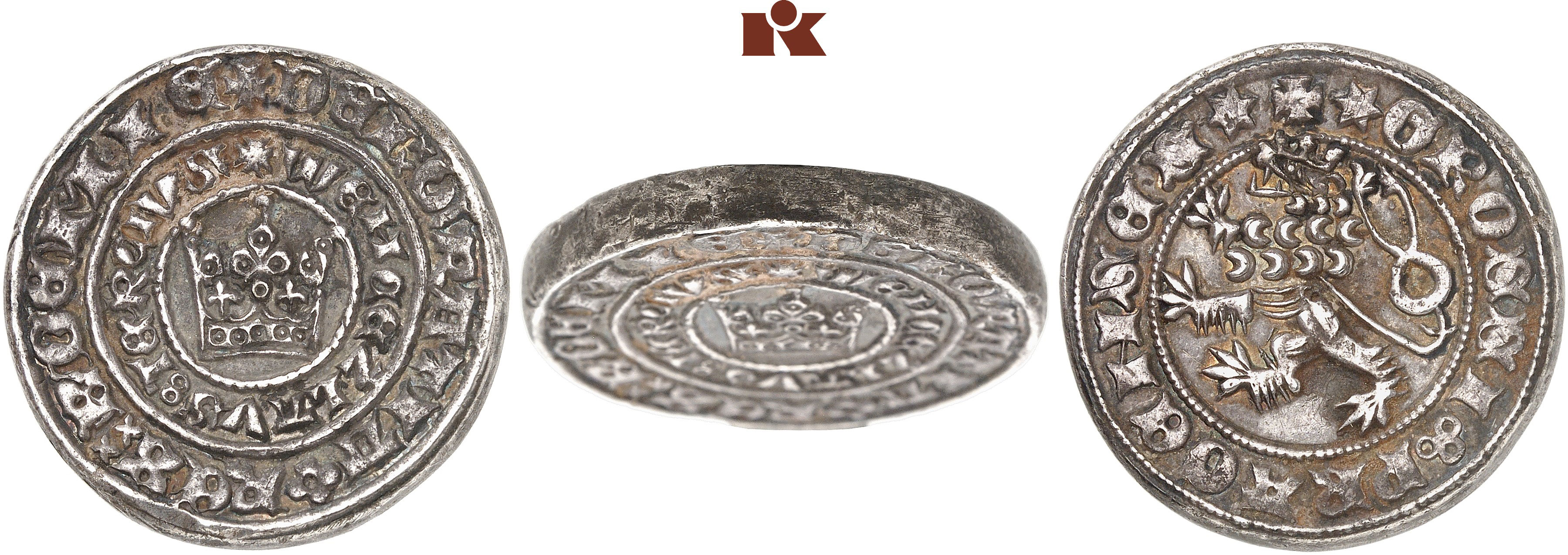


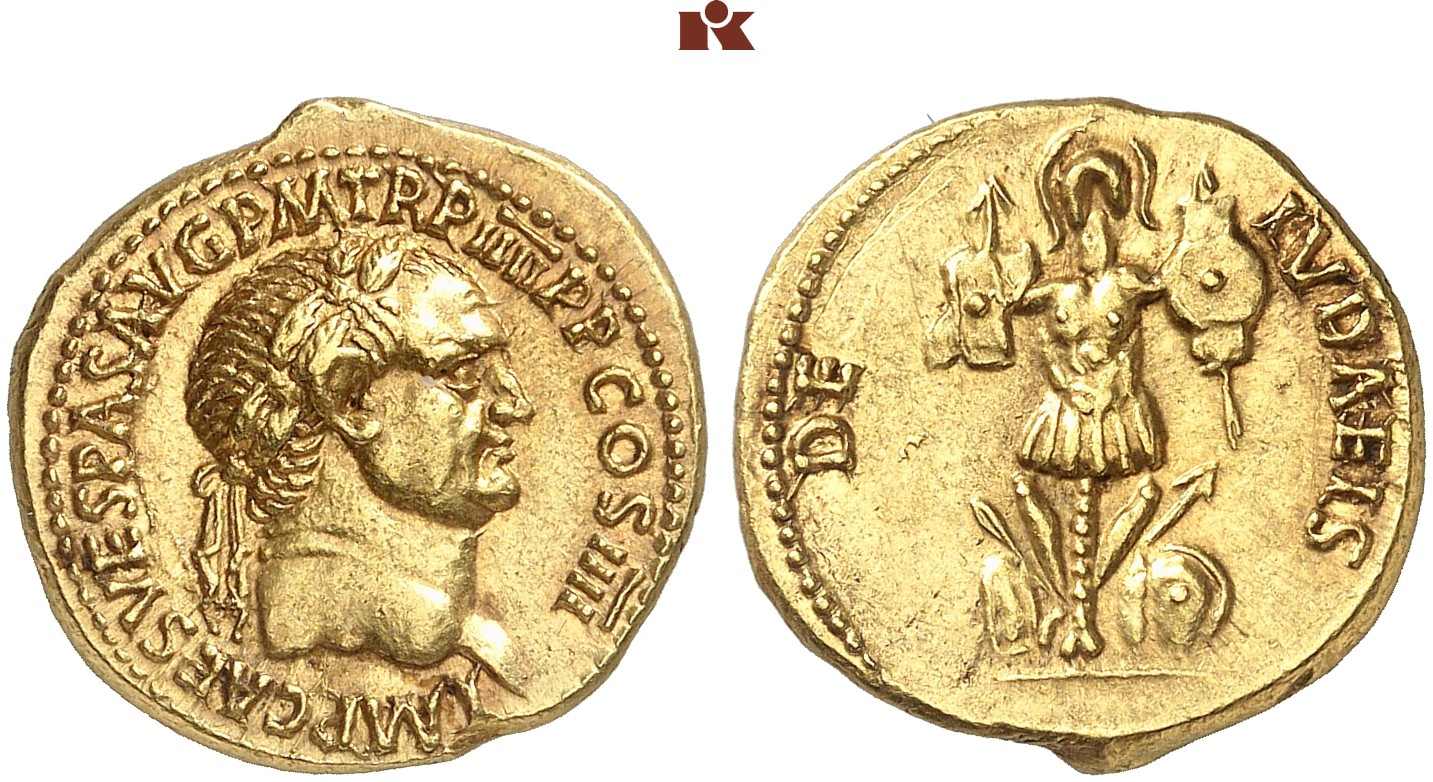
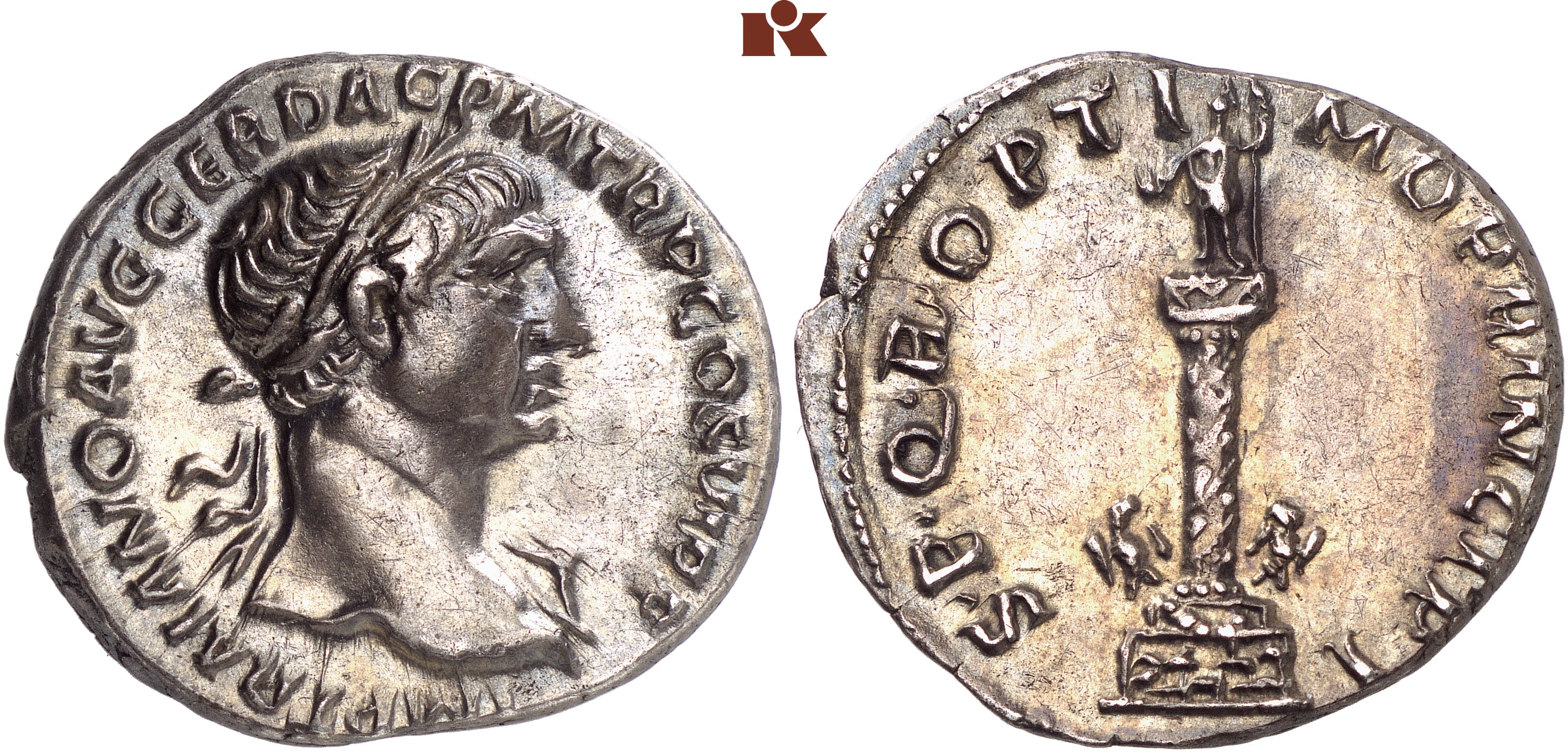
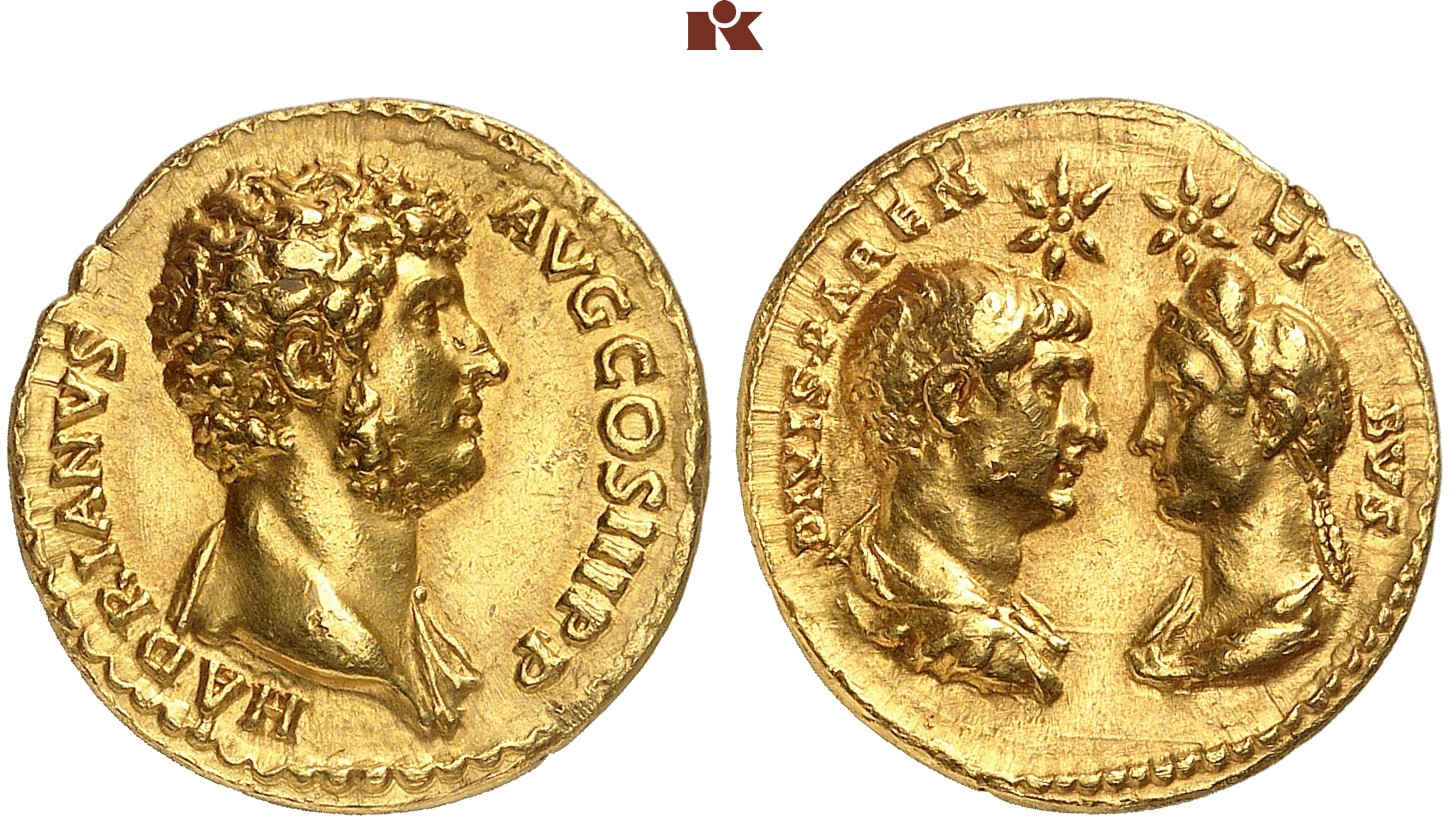


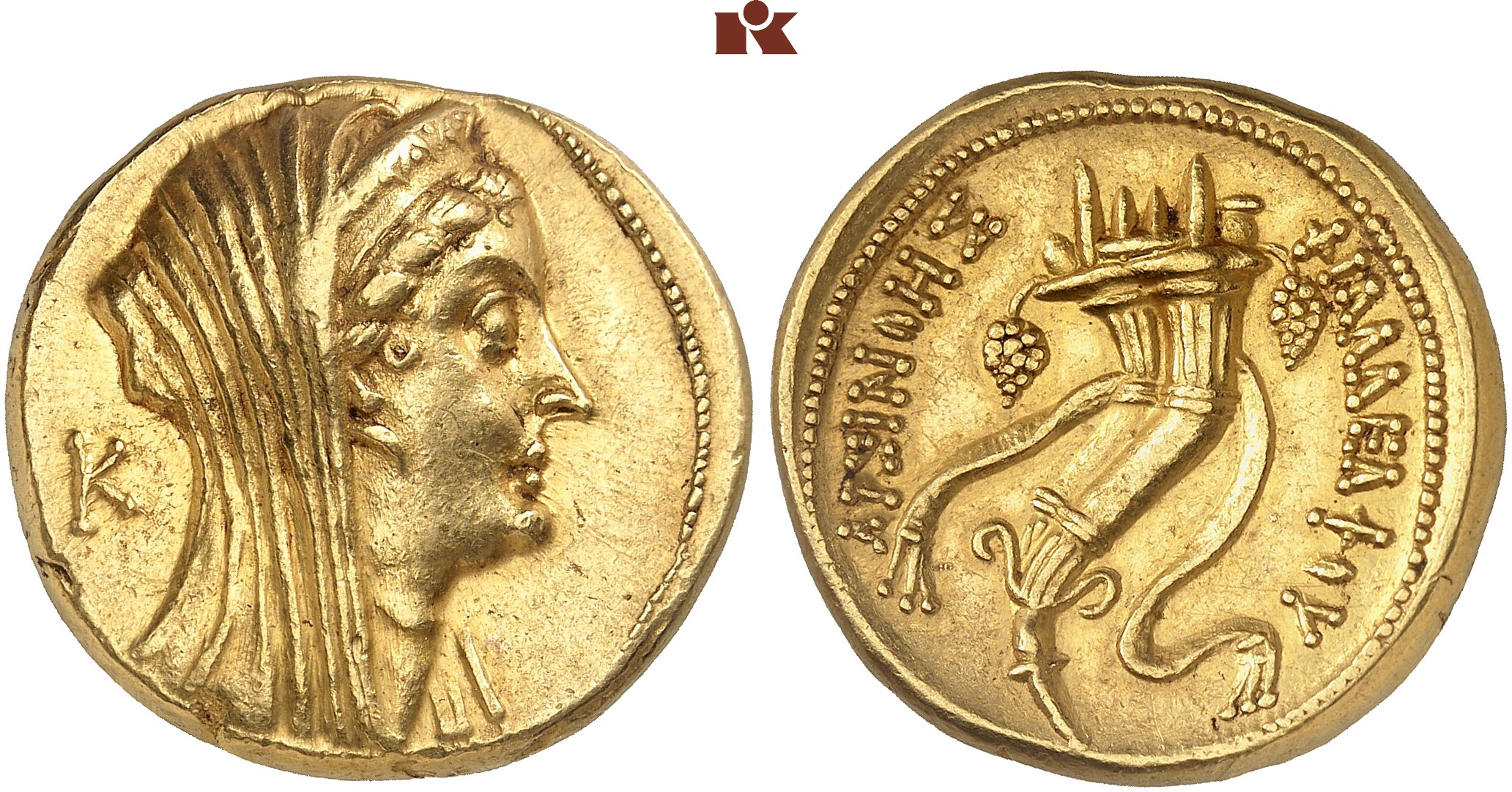
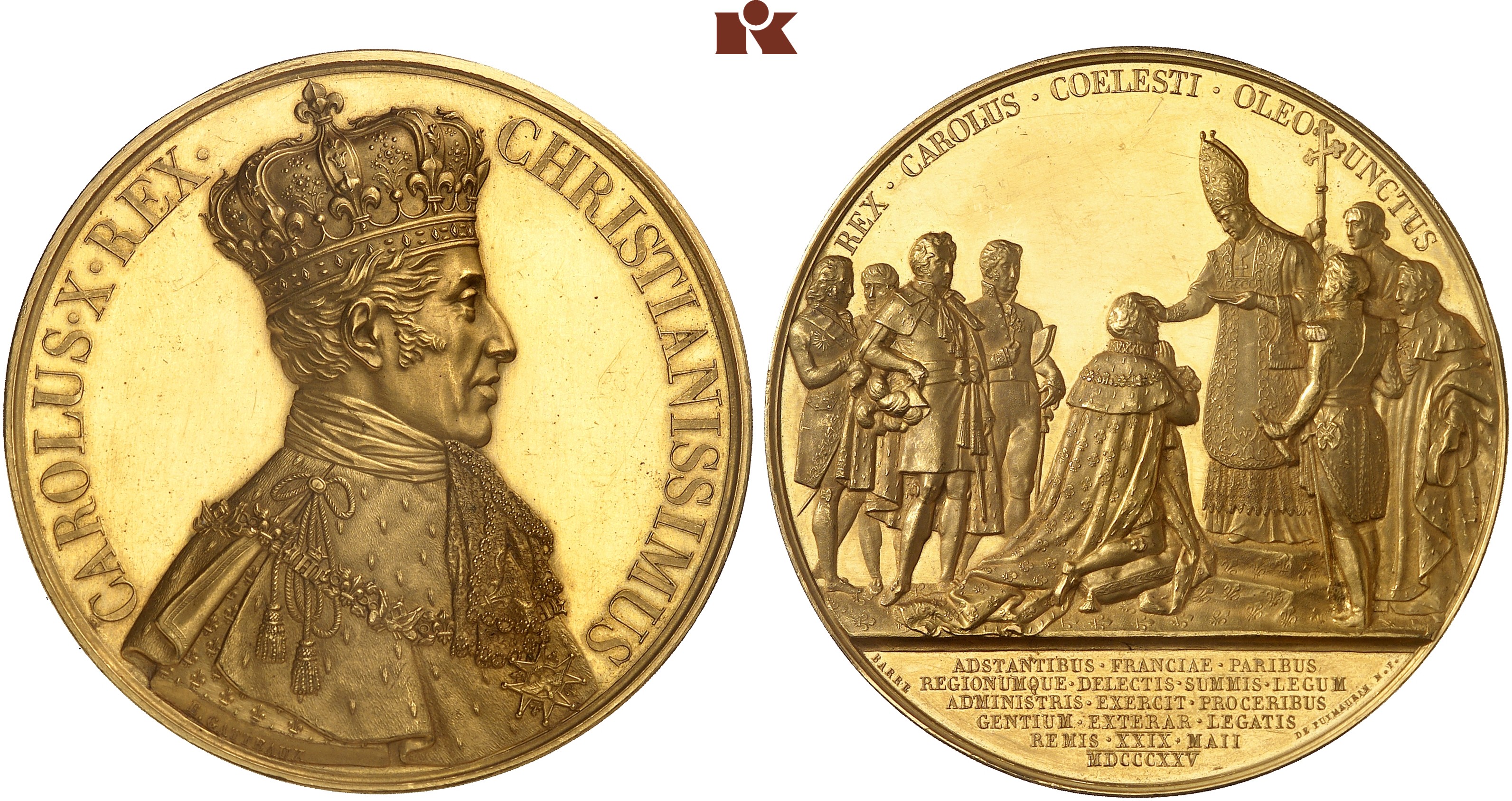
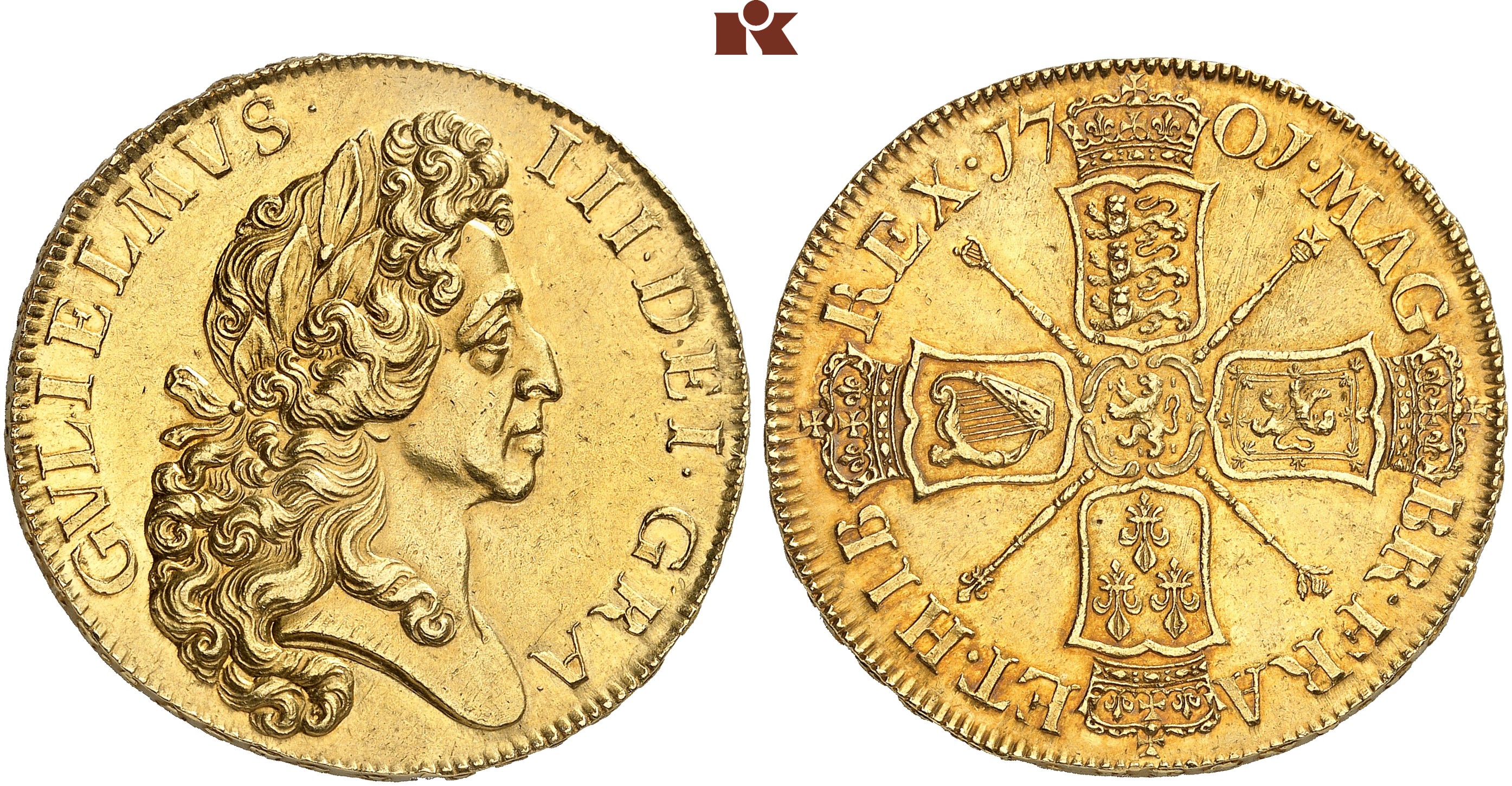


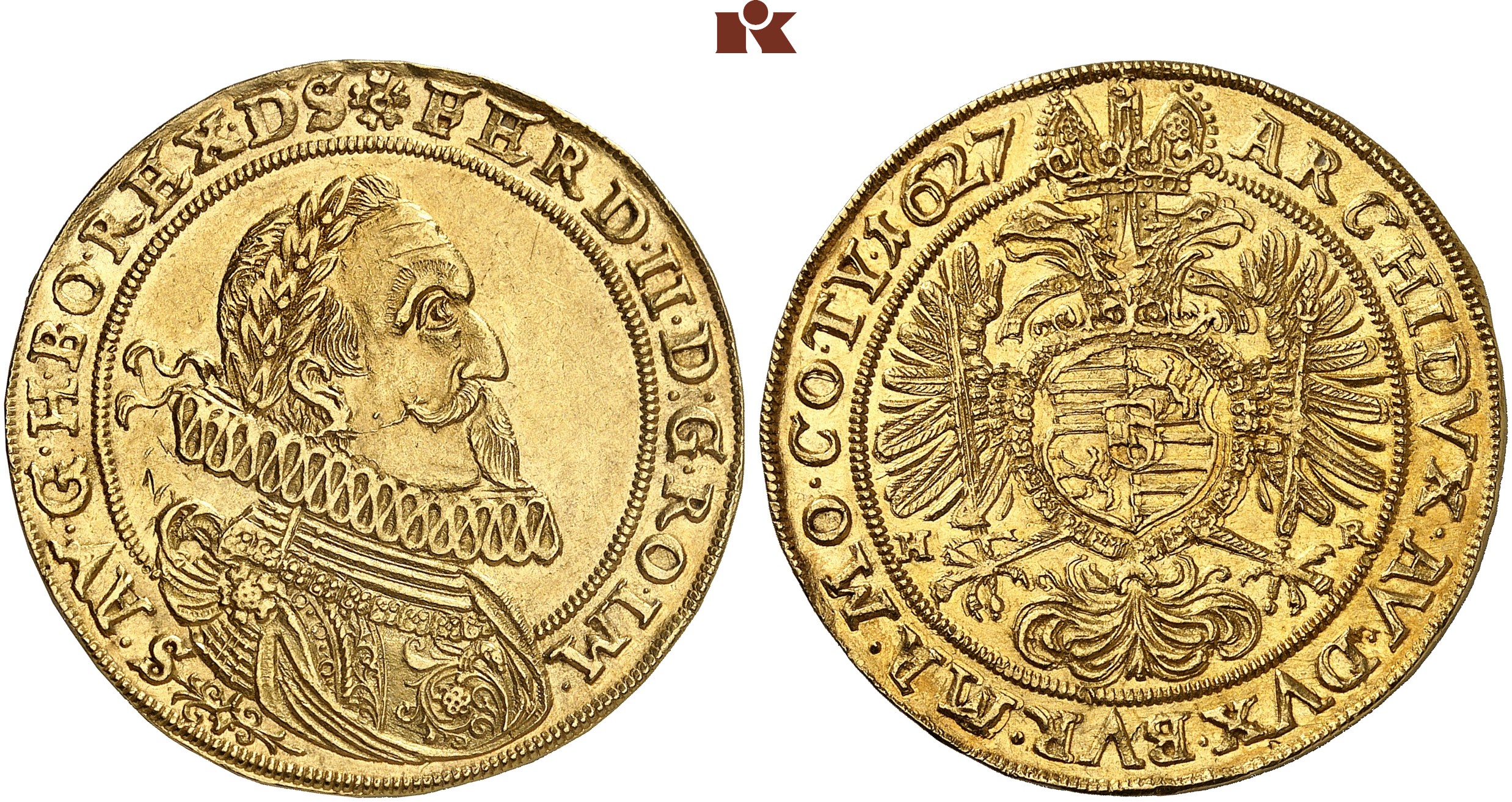

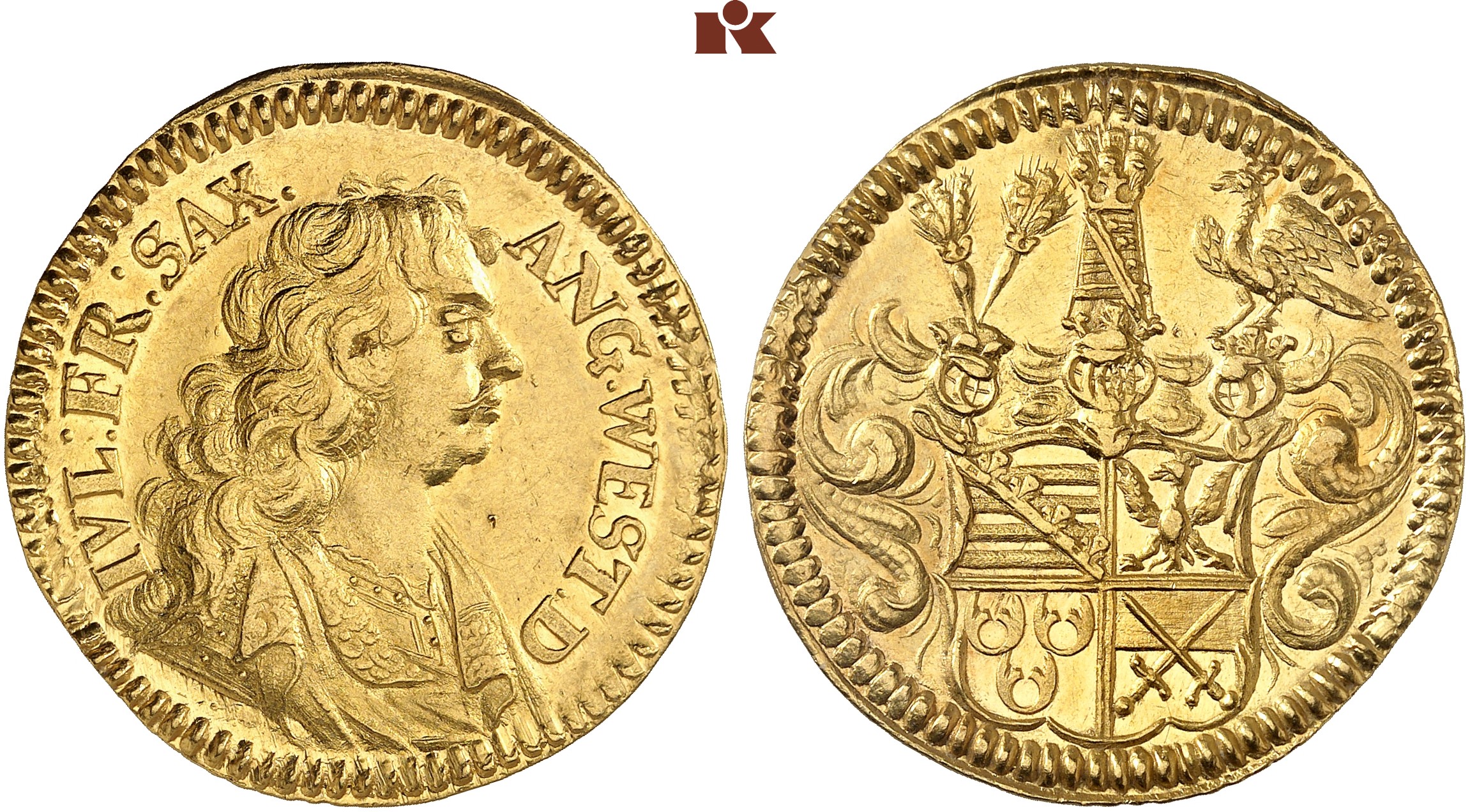


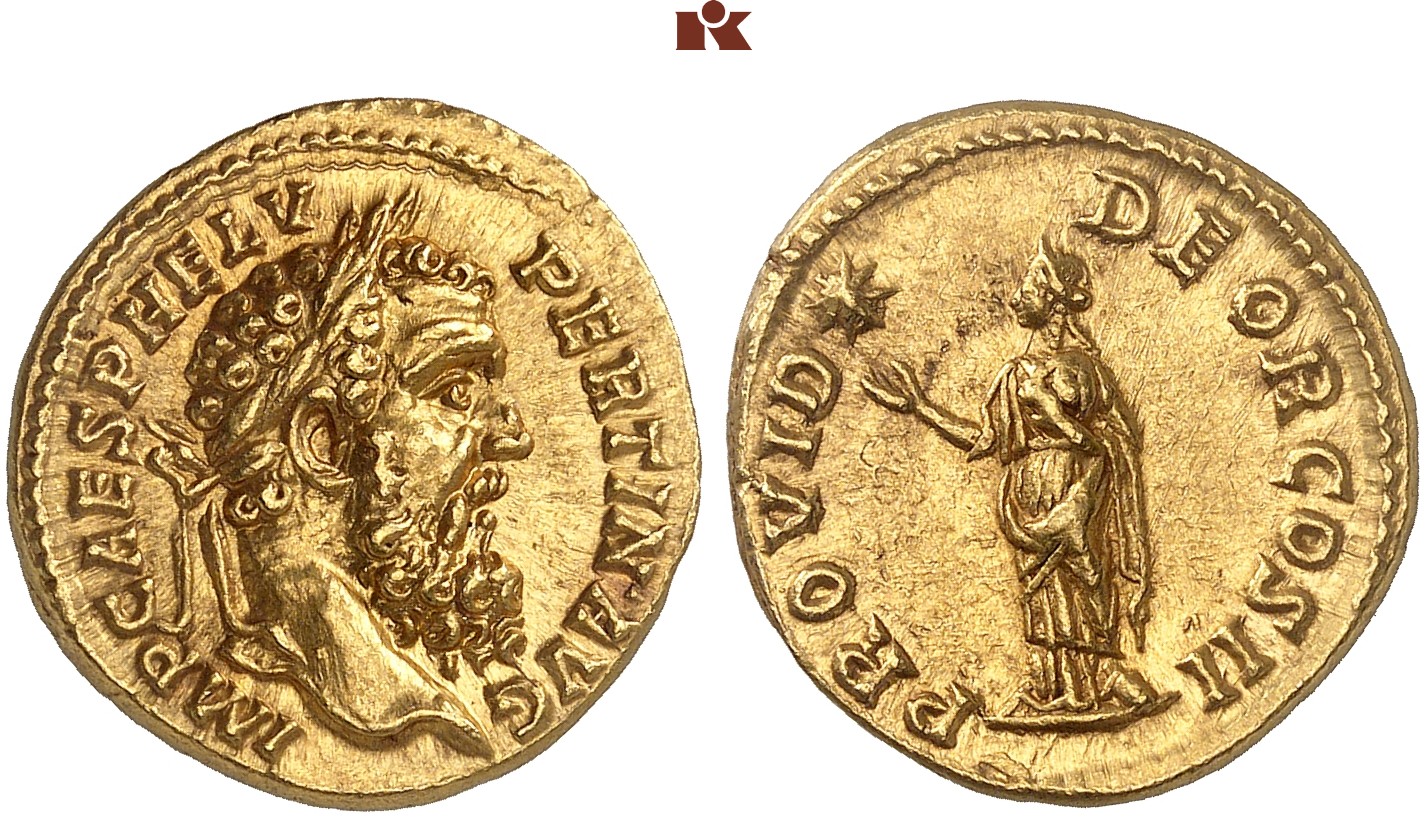
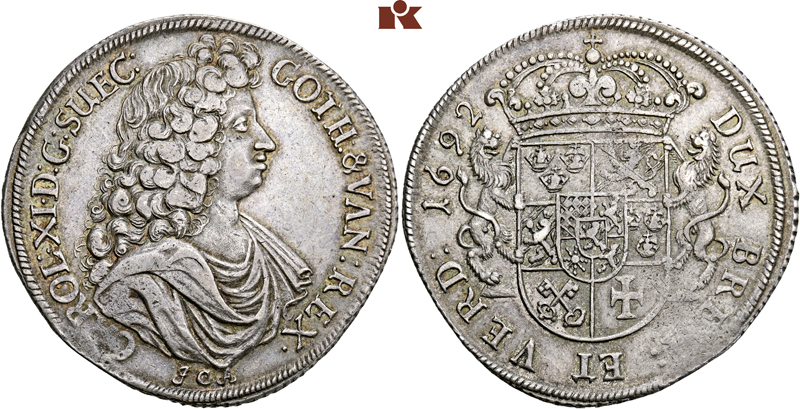

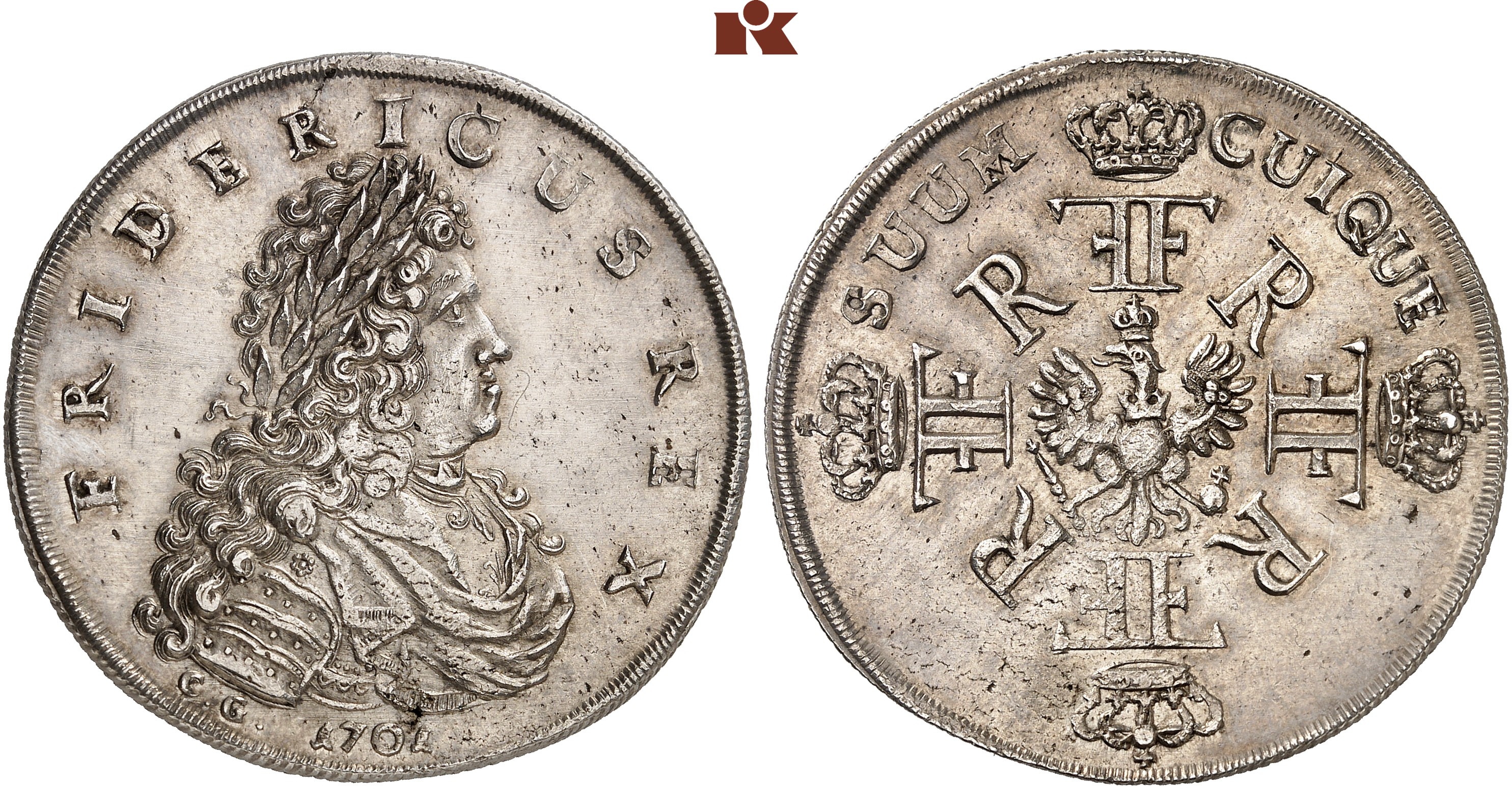


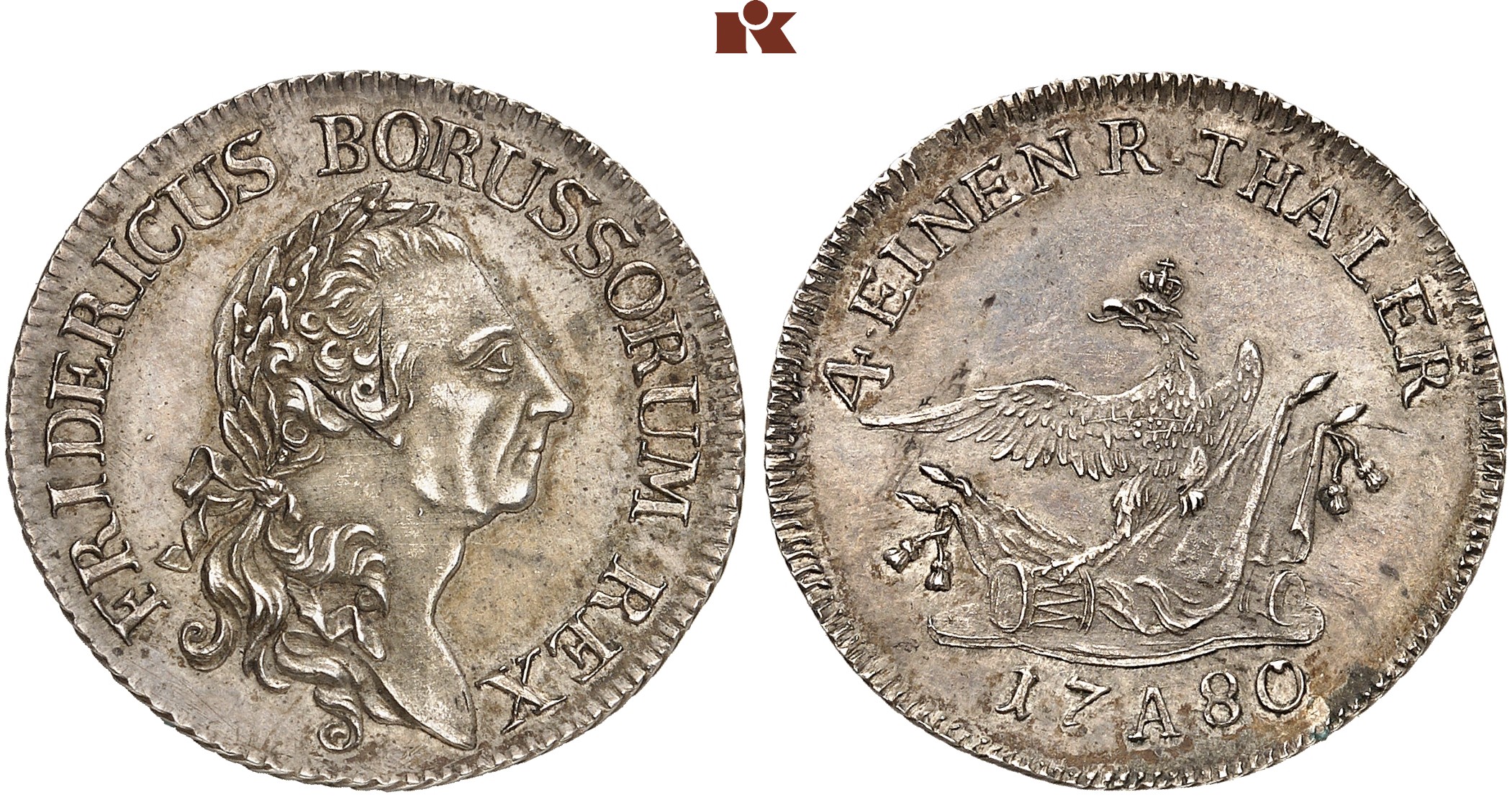
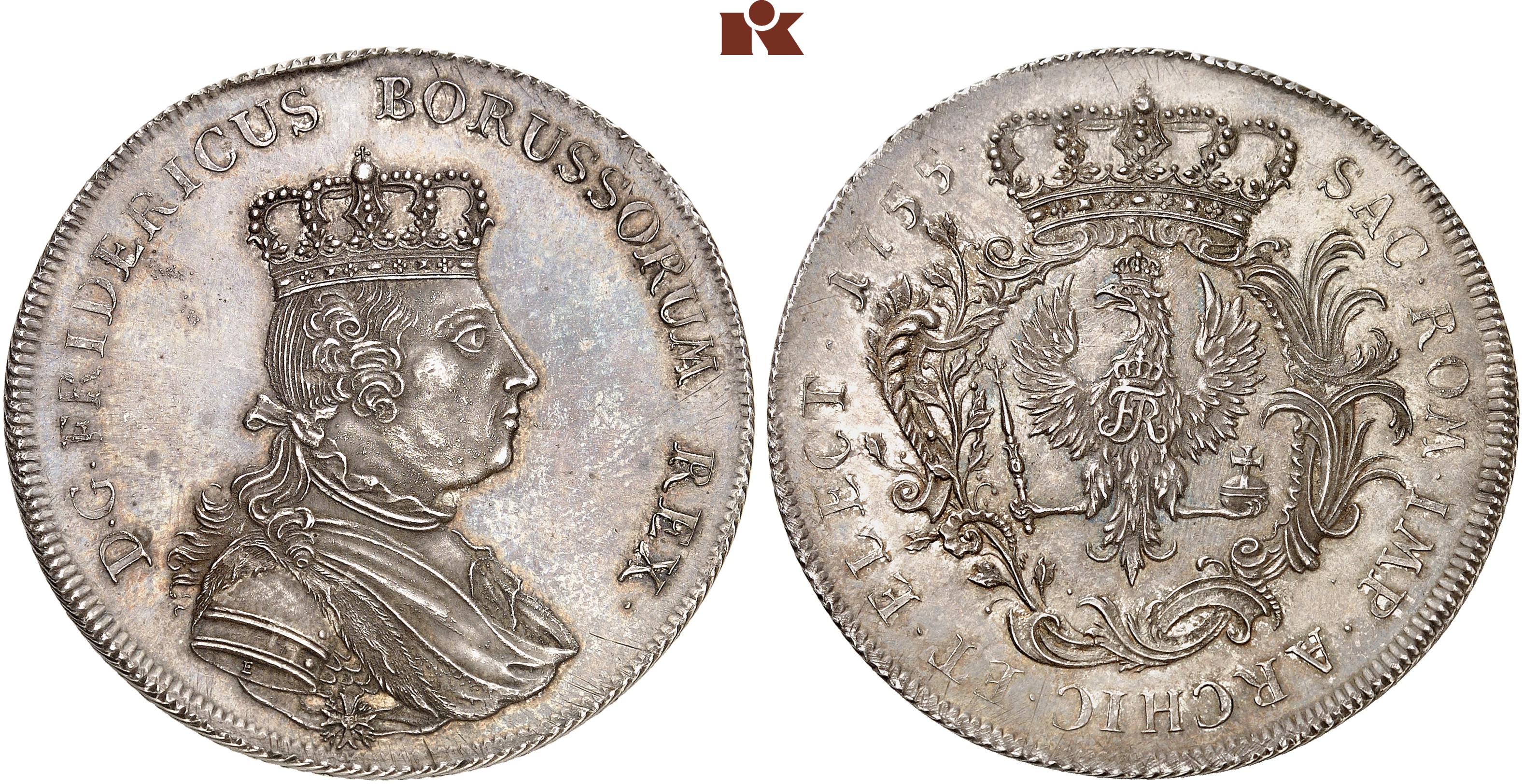
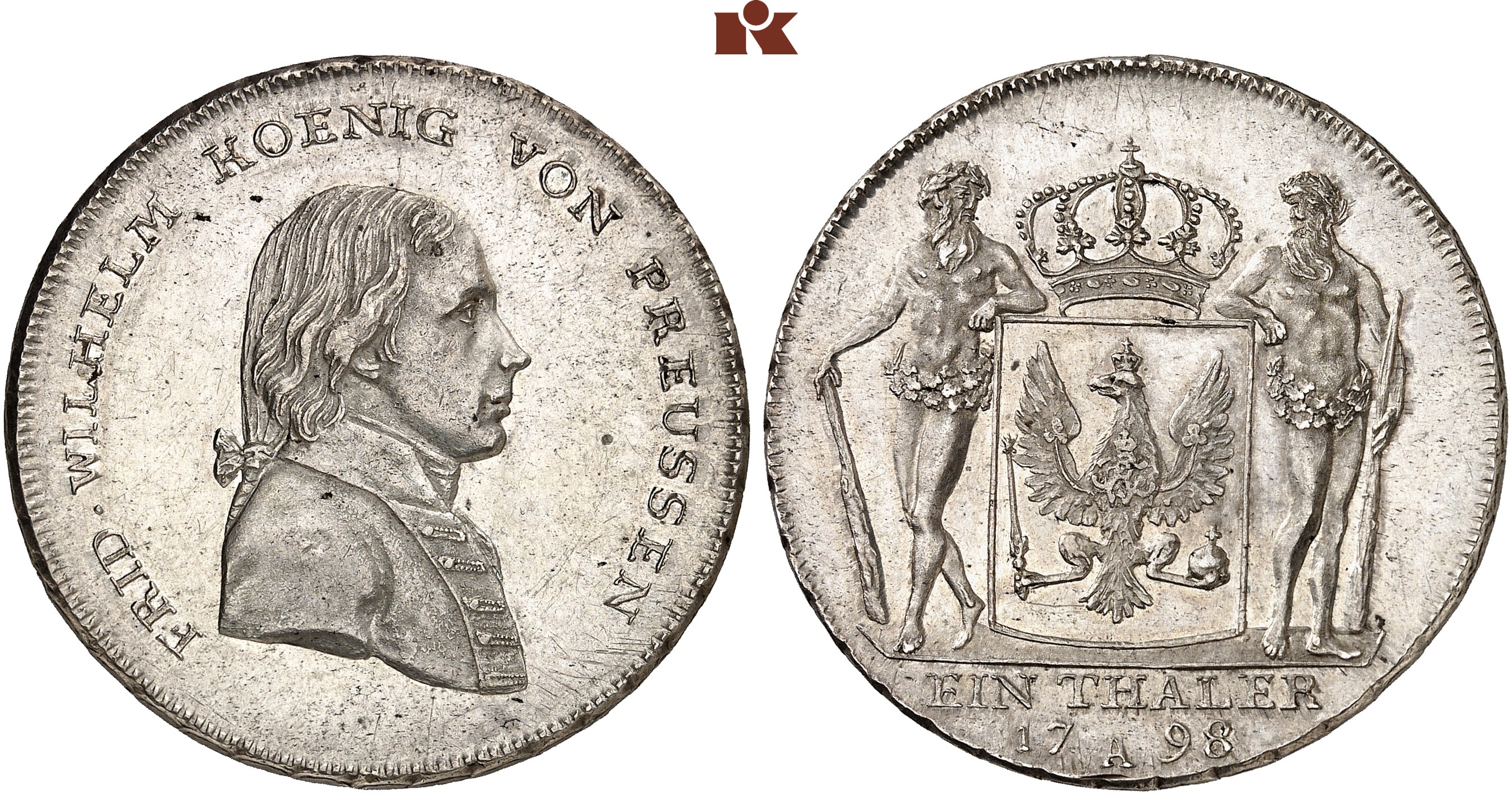



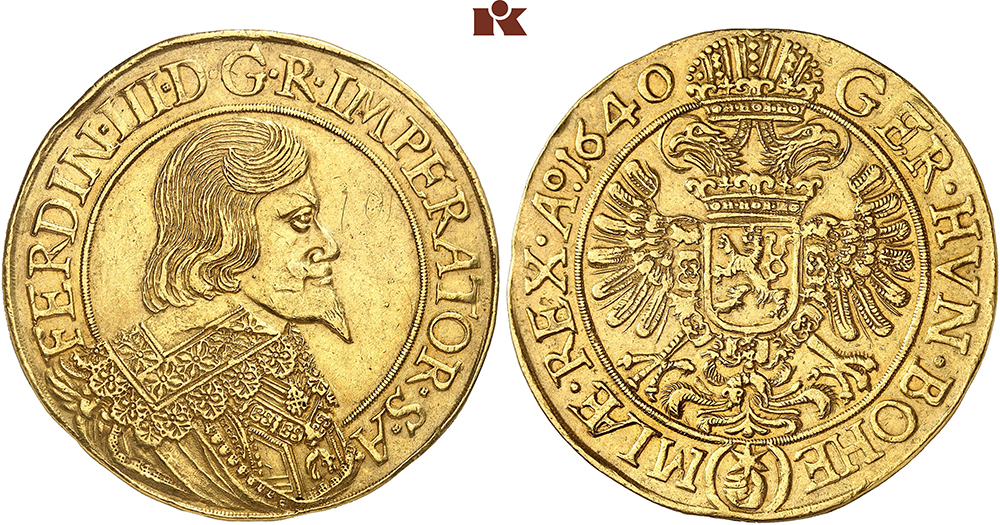
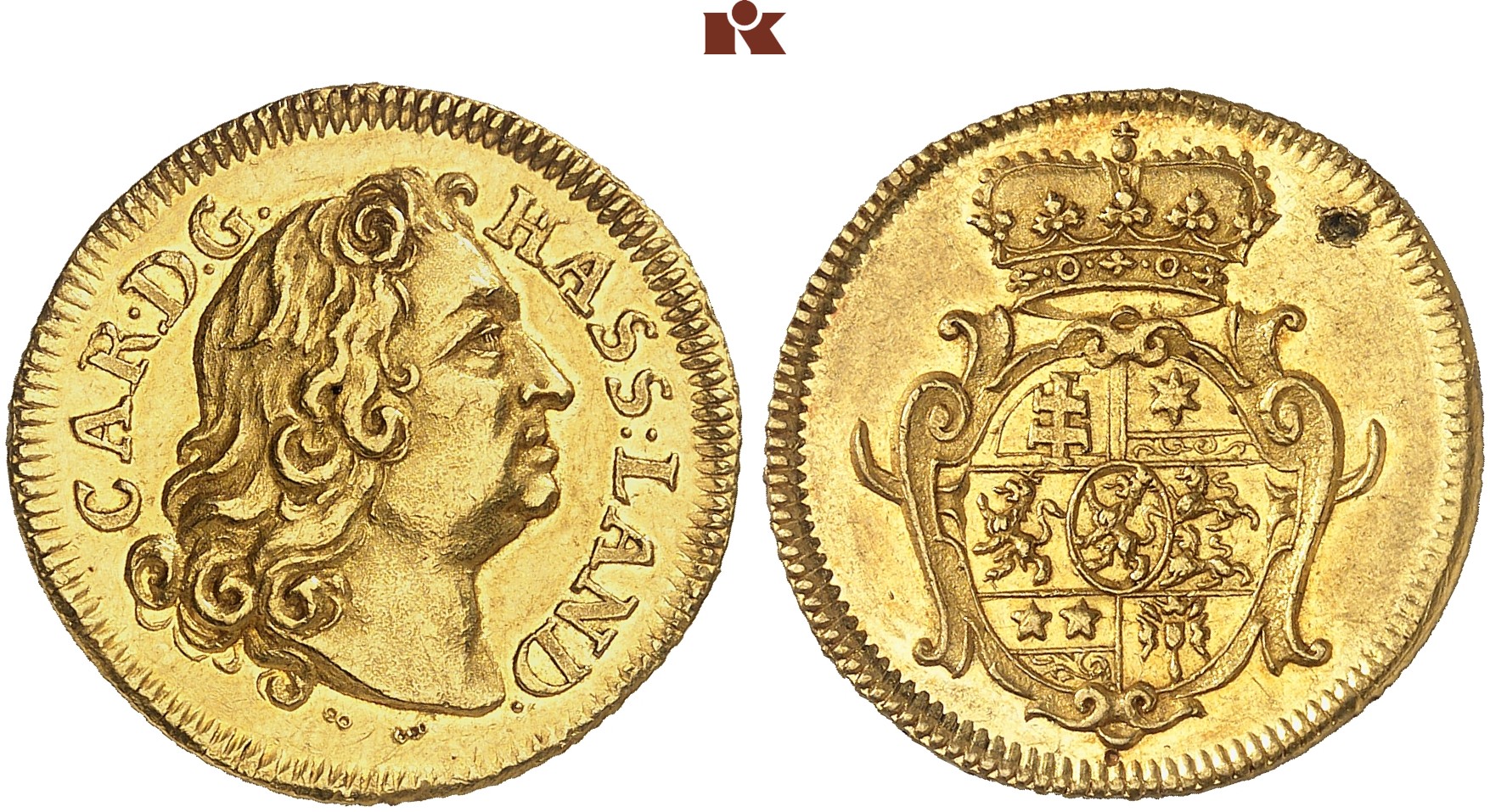 No. 5212: Hesse-Kassel.
No. 5212: Hesse-Kassel.
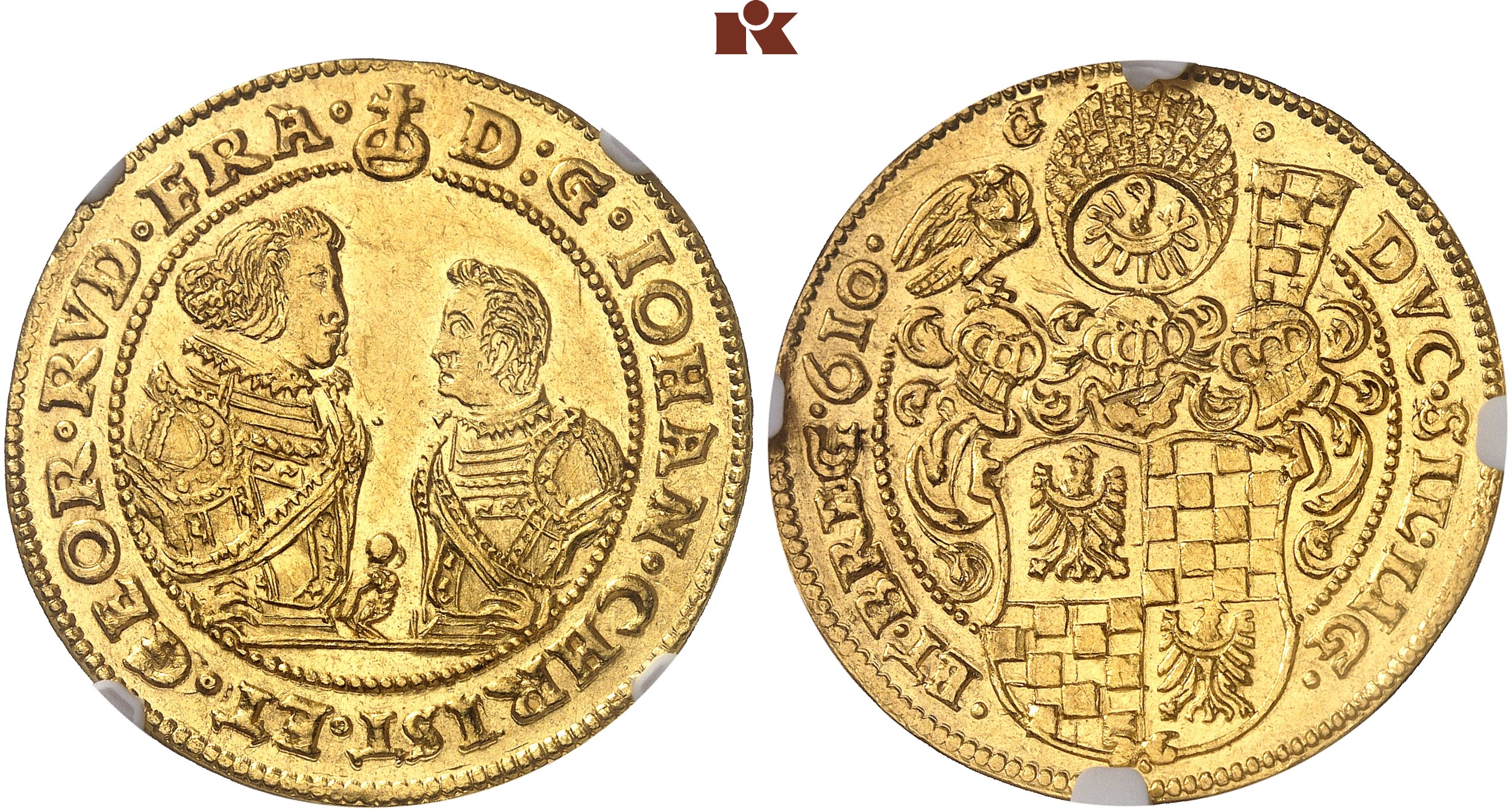
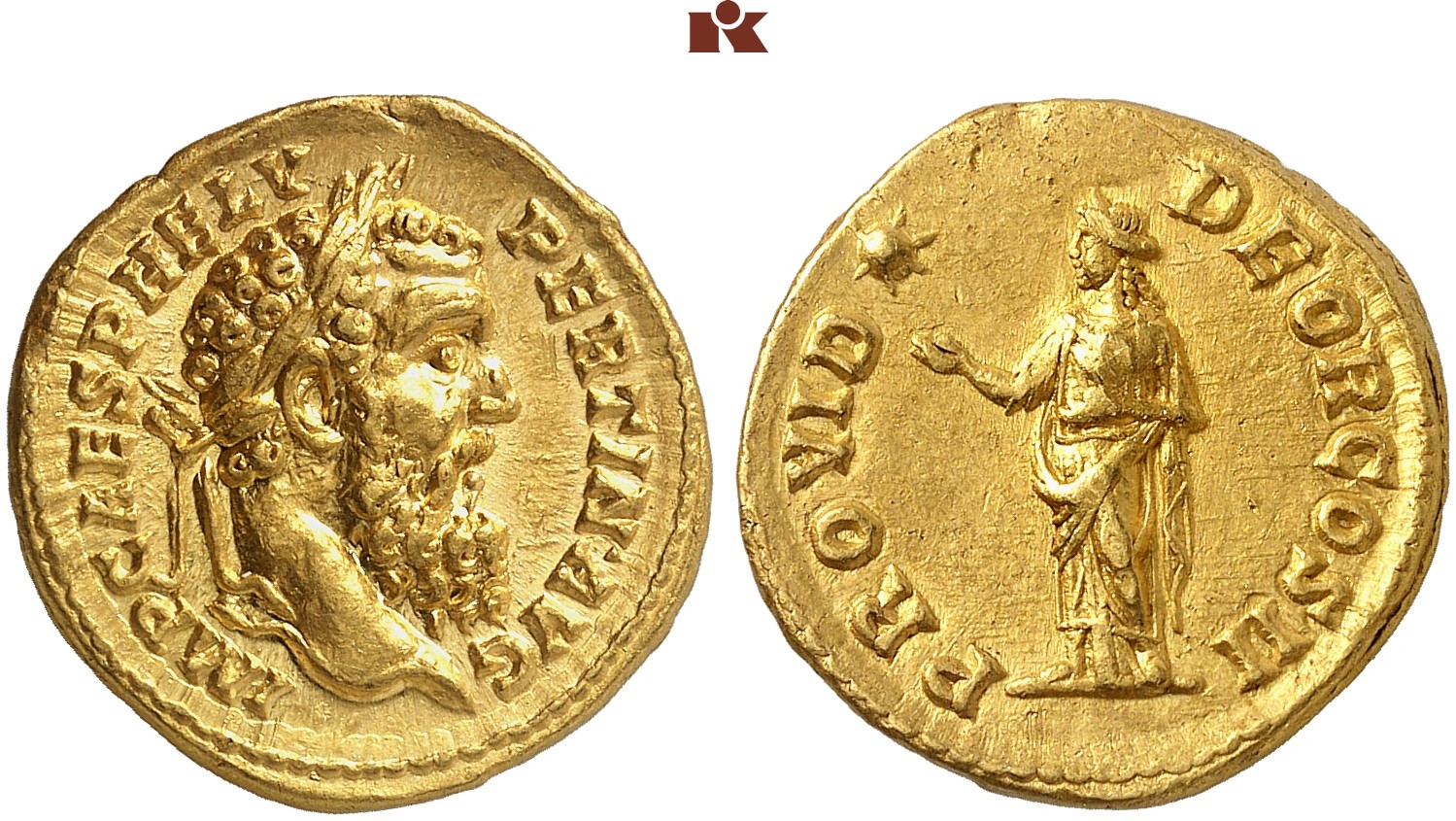
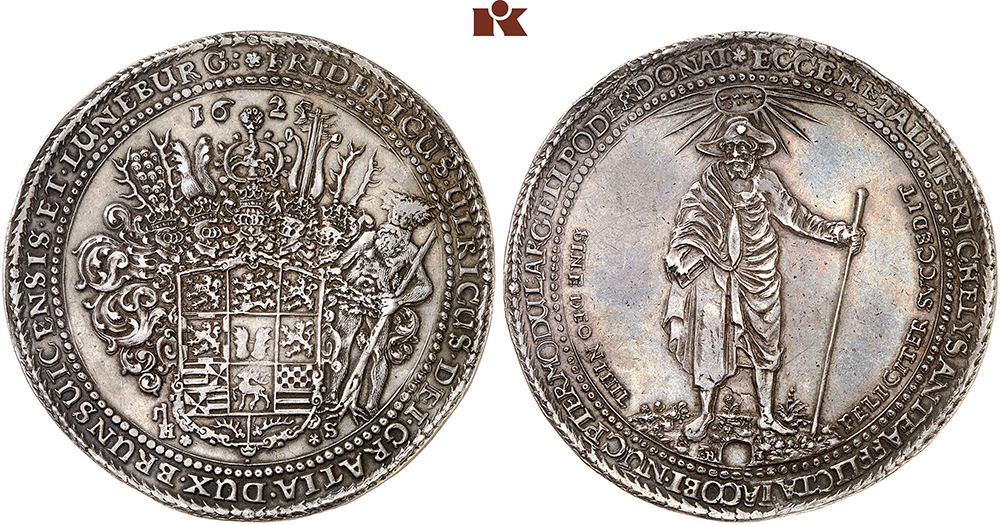
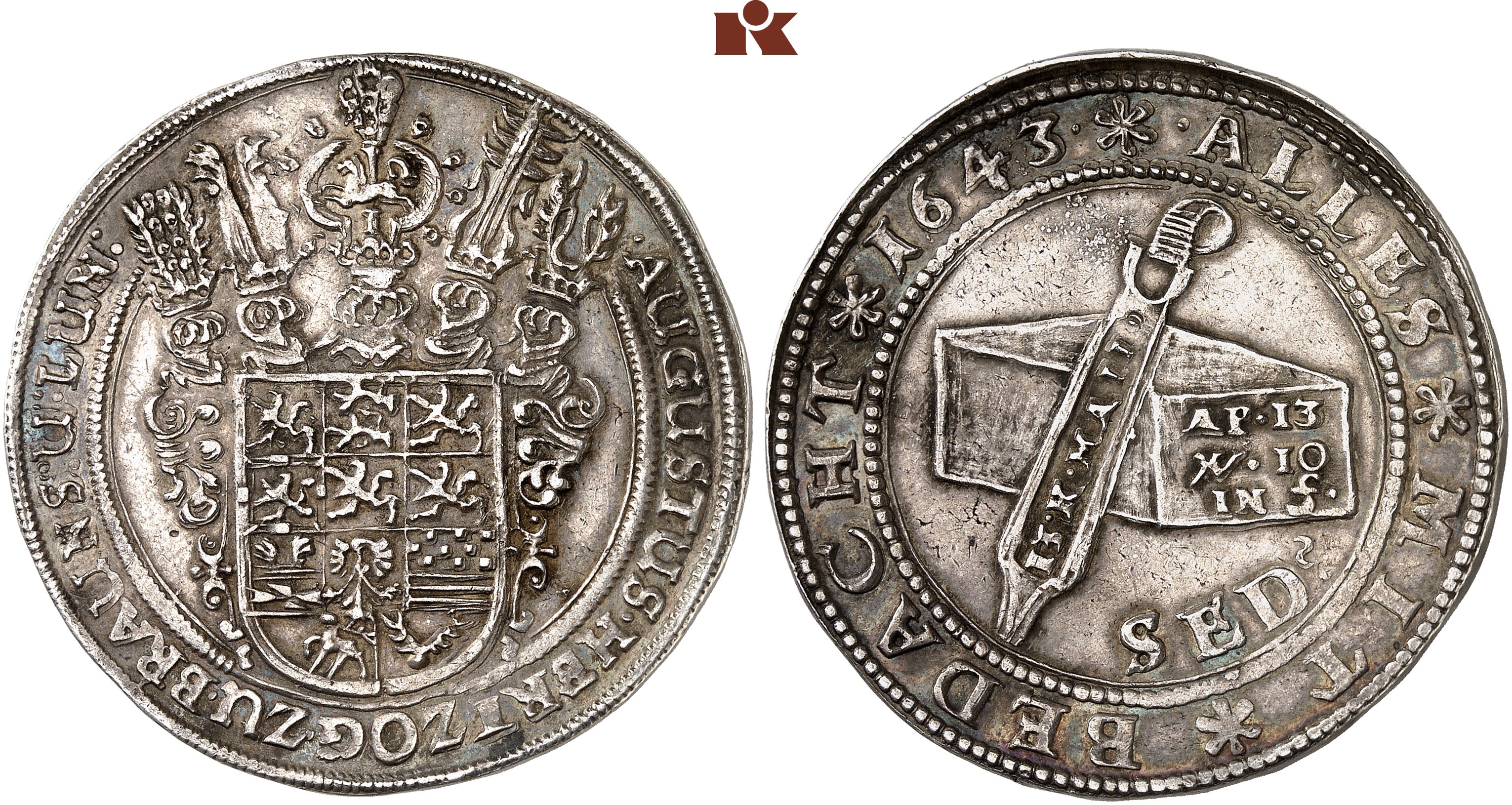
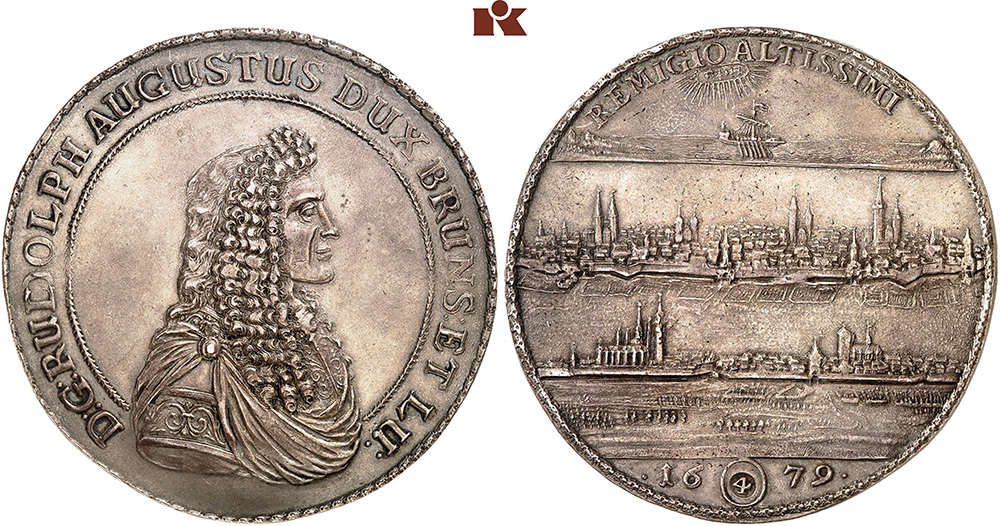
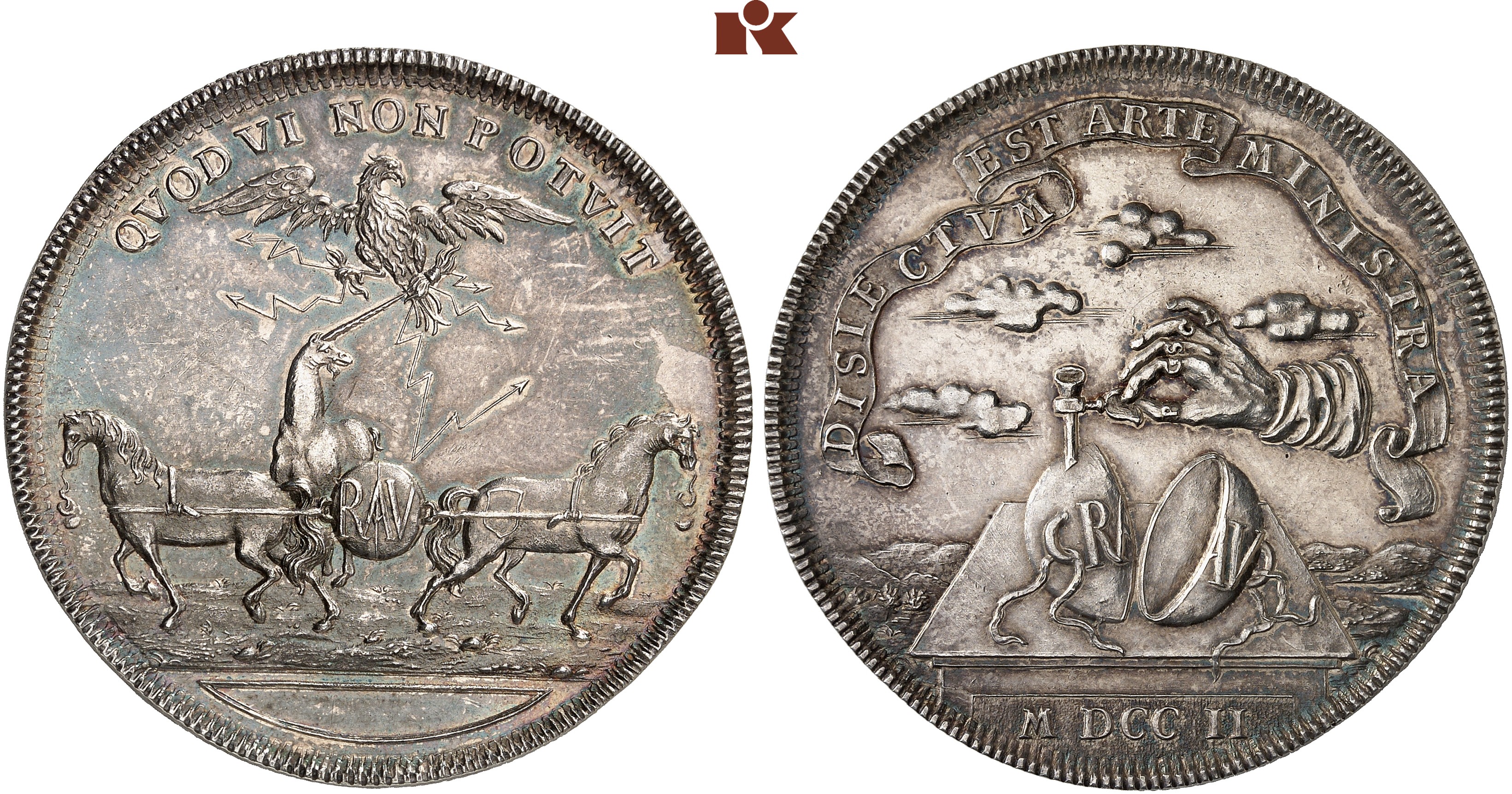


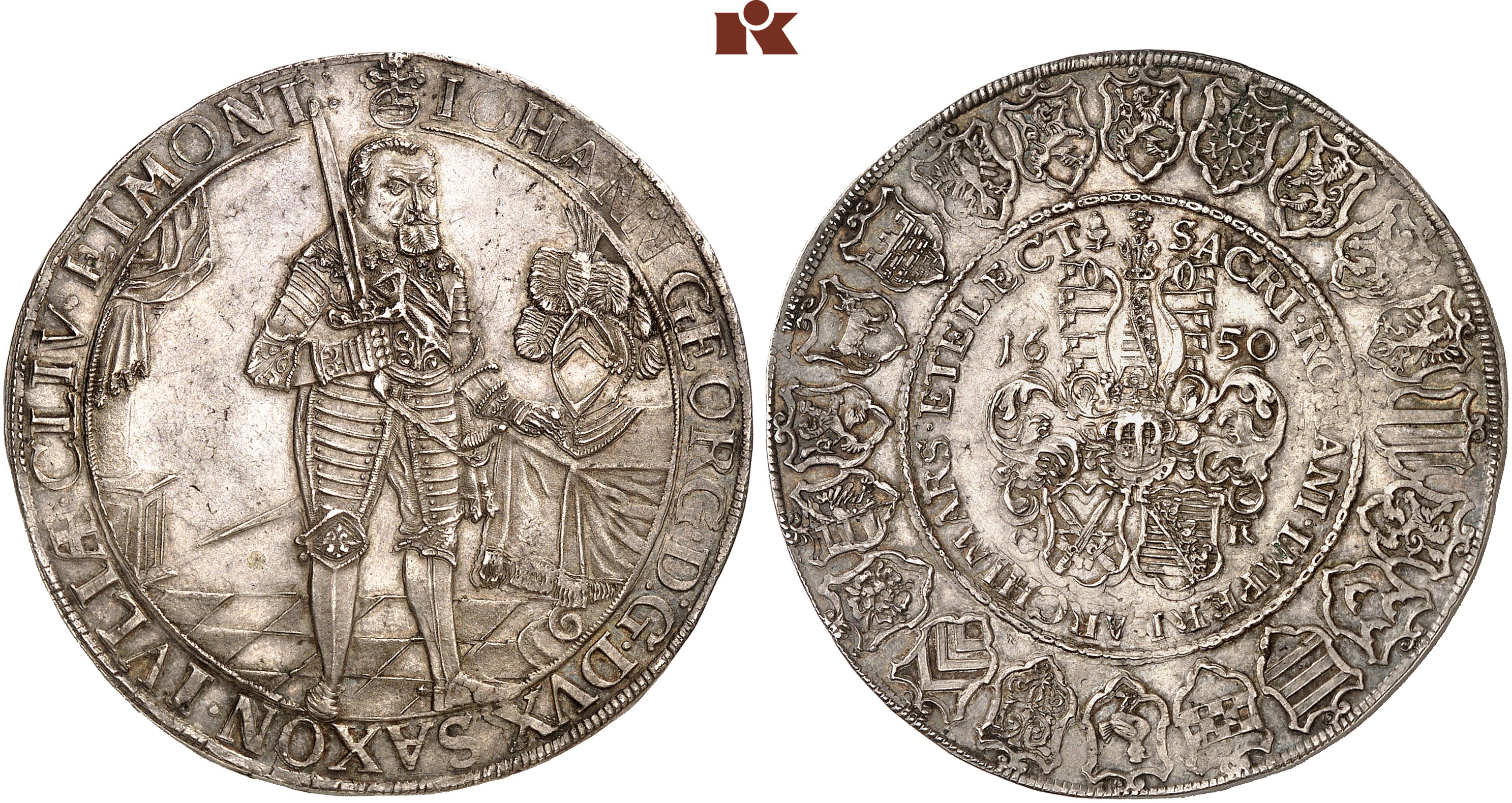 No. 5871: Saxony.
No. 5871: Saxony.
